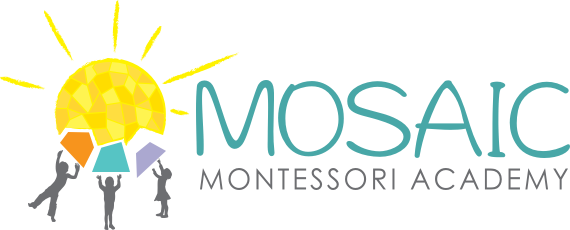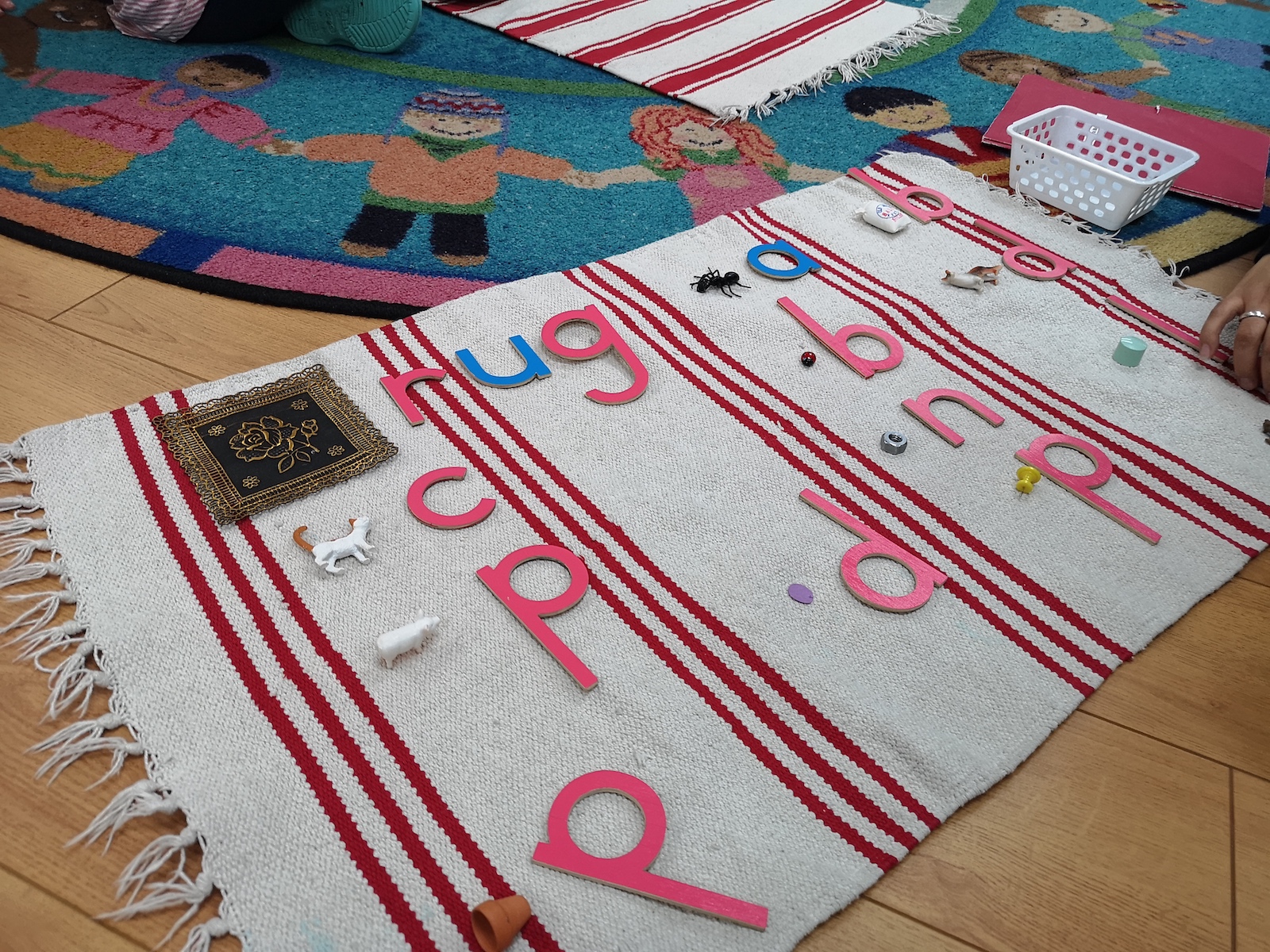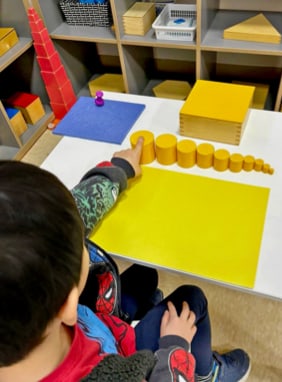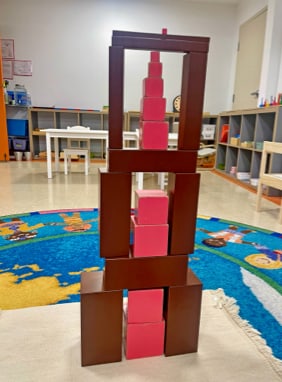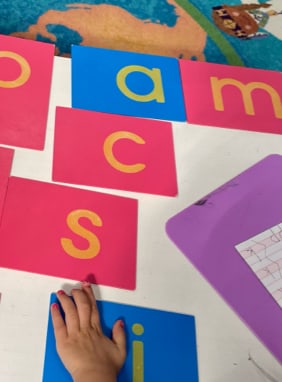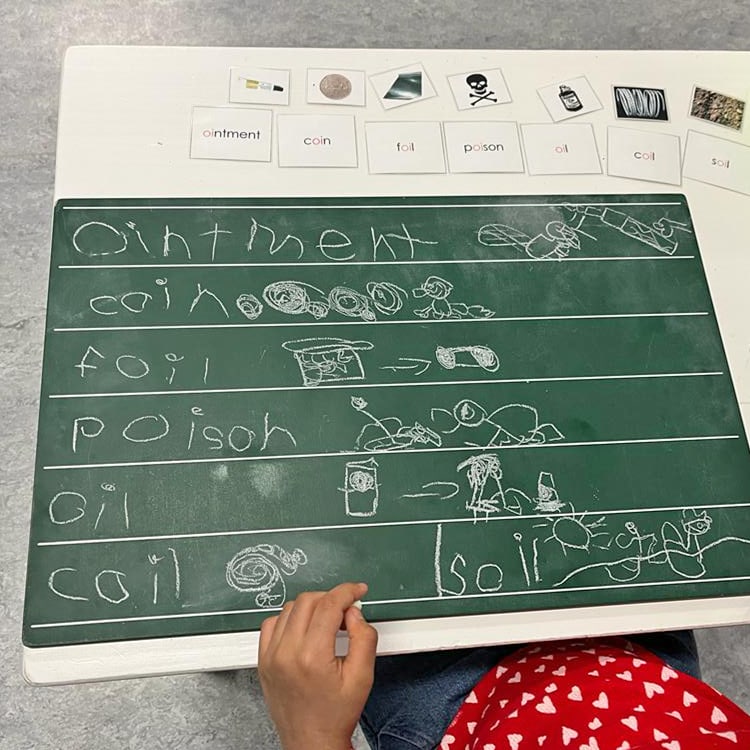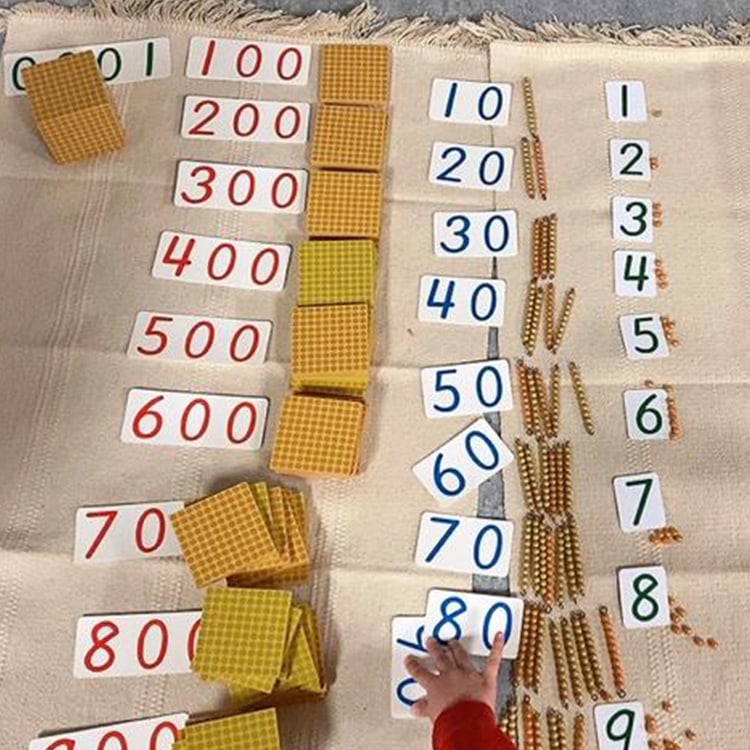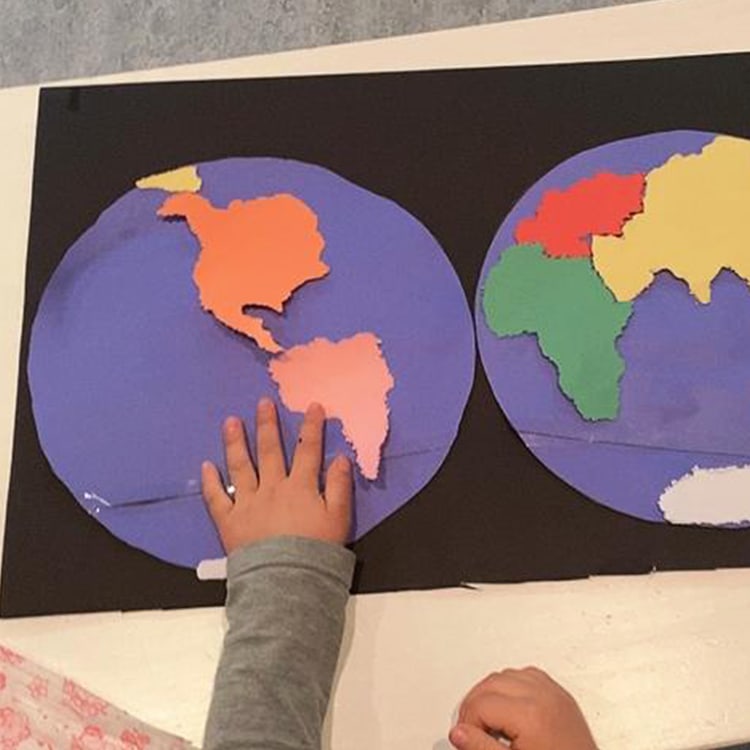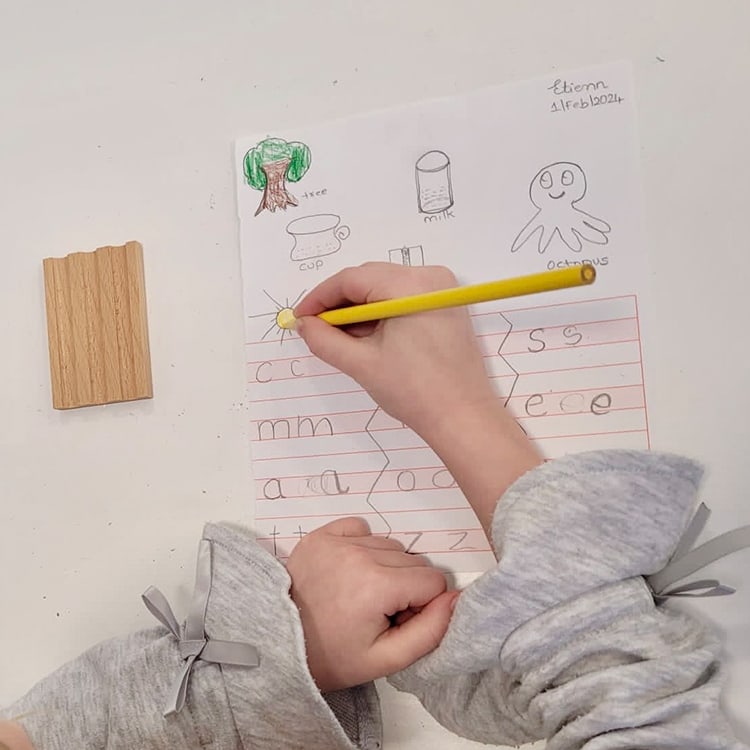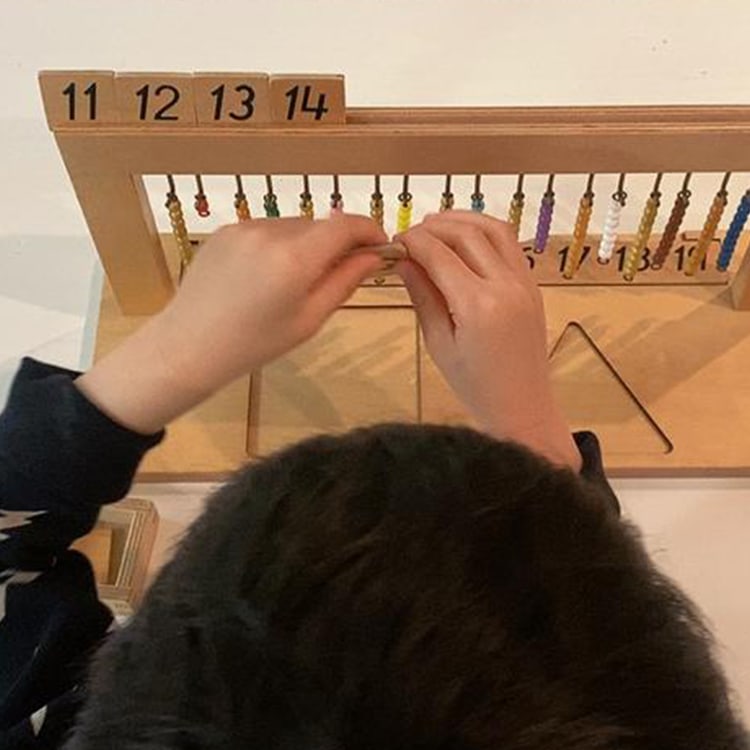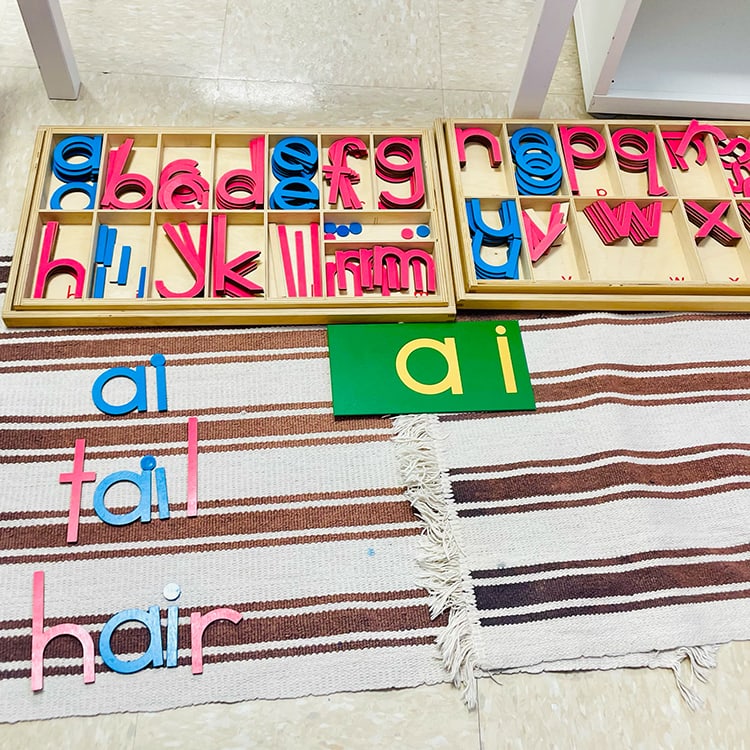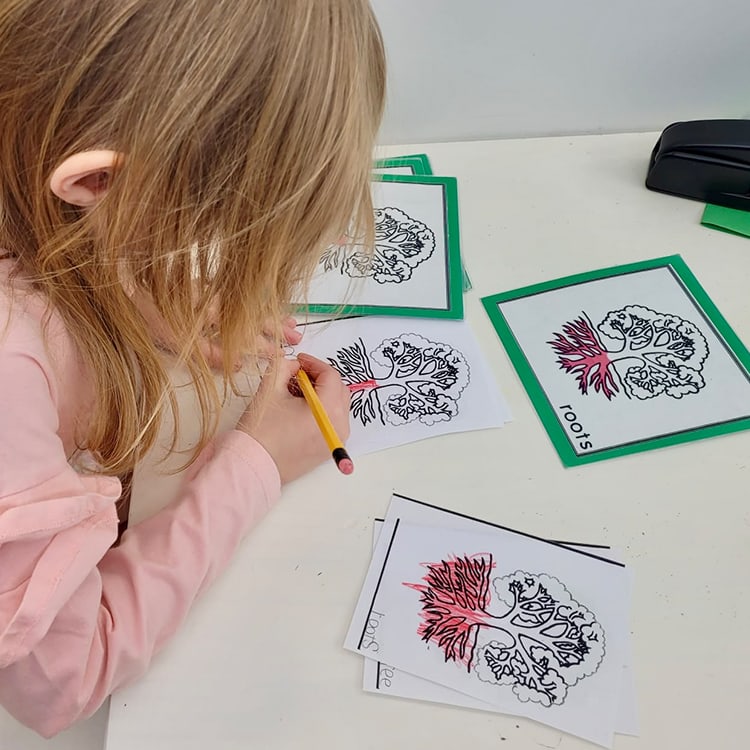Montessori education is well-known for its unique, child-centred approach, but what truly sets it apart is its understanding of intelligence. The Montessori theory of intelligence is rooted in the belief that every child has the potential to develop their intellect when given the right environment and opportunities.
Rather than viewing intelligence as a fixed trait, Montessori emphasizes nurturing a child’s natural curiosity and strengths through purposeful learning. When you learn more about how Montessori approaches intelligence, you can also help foster your child’s intellectual and emotional development.
What Is Montessori Theory?
The Montessori method, developed by Dr. Maria Montessori more than 100 years ago, is built on the belief that learning should work in harmony with a child’s natural development.
Dr. Montessori’s theories emphasize fostering independence, creativity, and a love for lifelong learning. A key element of her approach is the Montessori theory of mind, where intelligence is seen as dynamic and unfolding in response to an environment rich in stimulation and respect for children’s individuality.
Montessori’s View of Intelligence
Montessori views intelligence not as a rigid measure, like a test score, but as an evolving capacity shaped by experiences. This dynamic concept aligns with the 4 Cs in Montessori education that work together to build intellectual and emotional competence.
Children are not instructed in intelligence, but rather empowered to nurture it through a thoughtfully designed environment where they can explore, problem-solve, and discover for themselves. This view echoes Dr. Montessori’s belief in auto education (self-education), where learners are at the centre of their own intellectual development.
The Absorbent Mind
The concept of the absorbent mind is central to Montessori’s view of intelligence. It is the idea that young children’s brains are like sponges, soaking up knowledge from their surroundings—and that during early childhood, the brain is especially receptive. This concept emphasizes how crucial early childhood education is for building foundational skills like language, motor abilities, and social interaction.
Sensitive Periods
Dr. Montessori identified several sensitive periods, which are natural phases of heightened interest in specific areas of development, such as reading, order, or movement. During these windows, children are particularly motivated to explore and master new skills. Montessori educators create learning opportunities aligned with these periods to maximize a child’s growth and intellectual development.
The Prepared Environment
The prepared environment is one of Montessori’s foundational principles. It refers to a learning space designed to meet children’s needs and interests, filled with materials that promote exploration and independence. Montessori teachers organize activities based on the developmental stage and interests of children in their class, creating a harmonious balance between guidance and freedom.
Auto Education
Auto education reflects the belief that children learn best by teaching themselves. Through hands-on activities, collaborative projects, and real-world exploration, children in Montessori can take charge of their learning experience. This cultivates both confidence and intellectual growth, empowering students to pursue challenges and solutions actively.
The Role of the Teacher
Montessori teachers play the role of guides rather than traditional instructors. Instead of offering direct answers, they provide support and encouragement, allowing children to reach solutions independently. Their keen observation helps them offer the right materials and challenges at just the right time, aligning with each child’s unique path of growth.

The Theory of Multiple Intelligences
One of the most groundbreaking frameworks in education is the theory of multiple intelligences proposed by psychologist Howard Gardner. This theory reveals that intelligence is not a single, fixed skill but a spectrum of talents and abilities. The Montessori method naturally aligns with this model, recognizing that every child is unique and thrives in different ways.
Linguistic Intelligence
Children with linguistic intelligence excel in reading, writing, and verbal communication. Montessori classrooms offer materials like storytelling, language exploration, and writing exercises to foster this intelligence.
For example, a Montessori classroom might include hands-on activities like sandpaper letters that help children connect sounds with symbols, establishing a robust linguistic foundation.
Logical-Mathematical Intelligence
This intelligence involves reasoning, problem-solving, and recognizing patterns. Montessori encourages logical-mathematical growth using manipulatives like number rods, golden beads, and puzzle cubes. These tools allow children to develop strong critical-thinking abilities and real-world application of mathematical concepts.
Musical Intelligence
Some children are naturally attuned to music, showing sensitivity to rhythm, tone, and melody. Montessori integrates music into daily routines through singing, rhythmic clapping, and playing instruments. This nurtures a child’s creativity and emotional expression while boosting fine motor and auditory skills.
Bodily-Kinesthetic Intelligence
For children who learn best through movement and physical interaction, Montessori classrooms create opportunities for hands-on learning. Some activities, like flower arranging or building models, allow children to engage their fine motor skills while promoting concentration and independence.
Spatial Intelligence
Children gifted in spatial intelligence understand the world through visual patterns and designs. Montessori develops this intelligence with geometry puzzles, map work, and special materials like the Pink Tower.

Interpersonal Intelligence
Interpersonal intelligence focuses on understanding and empathizing with others. Children in Montessori settings can enhance their social skills through collaboration with peers and activities like group projects or role-playing. The intellectual environment supports empathy and emotional intelligence as essential components of learning.
Intrapersonal Intelligence
This self-reflective intelligence empowers children to understand their own feelings, motivations, and goals. Montessori fosters introspection by encouraging journaling, quiet activities, and mindfulness practices. The emphasis is on teaching children to recognize and regulate their emotions.
Naturalistic Intelligence
Naturalistic intelligence thrives on understanding and interacting with the natural world. Montessori classrooms often include gardening, nature walks, and animal studies to engage children with their environment. This hands-on approach inspires a deep appreciation for the natural world.
Nurture a Love for Lifelong Learning
Montessori’s theory of intelligence offers a powerful framework to inspire children to reach their fullest potential. By cultivating multiple intelligences, respecting individual growth patterns like the absorbent mind and sensitive periods, and maintaining a well-prepared learning environment, Montessori education helps children thrive confidently and independently.
Explore our Montessori programs to see how the 4 Cs—collaboration, communication, critical thinking, and creativity—come to life in our classrooms! Contact Mosaic Montessori Academy today for more information.
